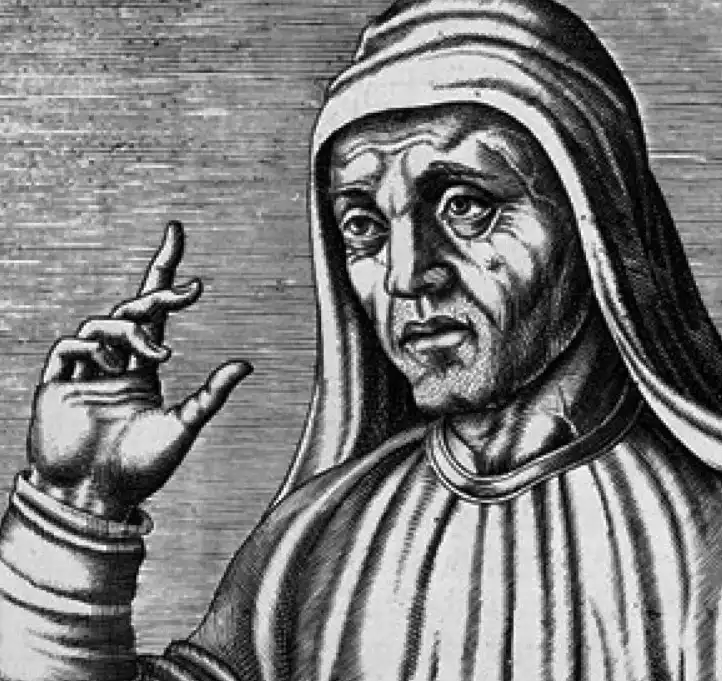
Alcuin of York (c. 735–804 AD), a pivotal figure in medieval Europe, emerged as a scholar, theologian, and the driving force behind the Carolingian Renaissance. His profound influence on educational reform and religious thought during the reign of Charlemagne marked a significant epoch in the annals of Western scholarship. Born in York, England, Alcuin’s life spanned the late 8th and early 9th centuries, a period critical for the shaping of modern European culture.
Early Life and Education of Alcuin of York
Alcuin’s journey commenced in York, where he was born into a noble family around 735 AD. His early education, under the tutelage of Archbishop Ecgbert and his successor, Ælbert, imbued in him a deep appreciation for the classical and religious texts. This education laid the cornerstone for his later contributions. Alcuin’s intellectual prowess was evident from a young age, as he swiftly mastered the trivium (grammar, rhetoric, and logic) and the quadrivium (arithmetic, geometry, music, and astronomy), the foundational subjects of medieval education.
In this nurturing environment of York, Alcuin not only honed his scholarly skills but also developed a profound spiritual understanding. His educational journey was marked by an intense study of the Bible, patristic writings, and the classics of antiquity. This blend of religious and secular learning became a hallmark of Alcuin’s later work and teachings.
Alcuin’s reputation as a scholar grew, and he soon became a leading figure in the York school. His broad knowledge, coupled with a deep commitment to education and faith, prepared him for the significant role he would later play in the Carolingian court. The early years in York were instrumental in shaping Alcuin’s character and intellectual pursuits, setting the stage for his subsequent impact on European education and religious thought.
Influence in the Carolingian Court and Legacy
In 781 AD, Alcuin’s journey took a pivotal turn when he was summoned to the court of Charlemagne, the King of the Franks. His arrival marked the beginning of a profound educational and cultural transformation. Alcuin assumed the role of leading educator and advisor to Charlemagne, spearheading a series of educational reforms aimed at reviving classical learning and Christian study. He established a palace school, where he taught the future leaders of the Carolingian Empire, instilling in them the values of intellectual inquiry and spiritual contemplation.
Under Alcuin’s guidance, the Carolingian Renaissance flourished. This period saw the preservation and copying of classical texts, the standardization of the Latin language, and the development of a more legible script known as Carolingian minuscule. Alcuin’s influence extended beyond education to encompass theological debates and ecclesiastical reforms, playing a crucial role in defining the religious and cultural identity of medieval Europe.
Alcuin of York left an indelible mark on the intellectual and spiritual landscape of his era. His legacy is evident in the resurgence of learning and culture during the Carolingian Renaissance, which laid the groundwork for the future development of Western civilization. Alcuin’s vision of a harmonious blend of classical and Christian education continues to resonate, highlighting the enduring relevance of his contributions to education, theology, and the preservation of knowledge.
References
- Bullough, Donald A. “Alcuin: Achievement and Reputation.” Brill, 2004.
- “Historic UK – Alcuin of York.” Accessed December 21, 2023. Historic UK.
- “JSTOR – Alcuin of York.” Accessed December 21, 2023. JSTOR.
- “JSTOR – The Library of Alcuin’s York.” Accessed December 21, 2023. JSTOR.
- “Oxford Bibliographies – Alcuin of York.” Accessed December 21, 2023. Oxford Bibliographies.
- “Oxford University Press – Alcuin of York.” Accessed December 21, 2023. Academic OUP.
- Wallace-Hadrill, J. M. “The Barbarian West, 400-1000.” Blackwell, 1962.
